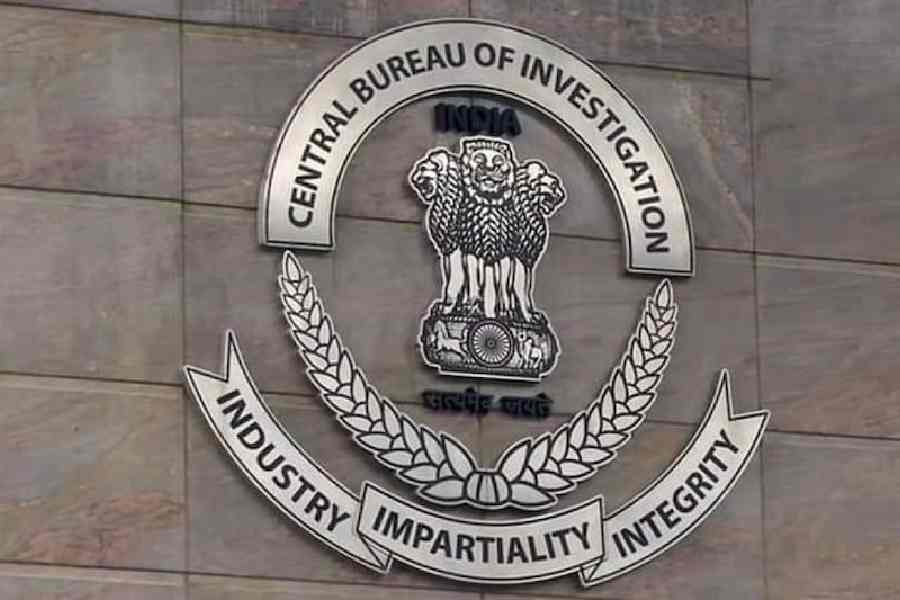The CBI on Tuesday questioned Apurba Biswas, professor of the department of forensic medicine and toxicology at RG Kar Medical College and Hospital, to have a clearer understanding of the post-mortem report of the junior doctor, including why it appeared to the experts that the death was “homicidal” and due to “effects of manual strangulation associated with smothering”.
The 31-year-old post-graduate trainee of the hospital and medical college’s chest medicine department was found raped and murdered on August 9. Biswas was the senior-most among a board of three doctors that performed the post-mortem.
The two other board members were forensic medicine experts, including Rina Das from Biswas’s department at RG Kar, and Molly Banerjee from NRS Medical College and Hospital.
While Biswas is a professor, Rina is an associate and Banerjee, an assistant professor of forensic medicine.
Sources in the central investigating agency said the findings of the post-mortem report are vital in the probe into the rape and murder of the junior doctor.
Since Biswas is the seniormost among the three forensic medicine experts, it was crucial to understand from him why the team had arrived at certain observations on the nature of the death of the junior doctor, they added.
The post-mortem report, sources said, mentions multiple bruises on the junior doctor’s body, including the nose, lips, neck, arms, shoulder and knees, a torn hymen with blood oozing out, and “hemorrhagic spots on the inner side of her epiglottis”.
The epiglottis is a cartilaginous lid that prevents food and water from entering the windpipe and lungs when a person swallows.
“We want to understand whether the bruises on the victim’s body were due to resistance against strangulation and smothering by the accused,” said a senior officer.
“The report states the injuries are ante-mortem (before death) in nature and we want certain clarifications on this observation.”
Biswas’s questioning came within two days of the senior faculty member of the medical college and hospital saying that a person claiming to be close to the family of the deceased, a former councillor, had said if the post-mortem weren’t conducted on that day, there would be a blood bath.
“There was pressure to conduct the post-mortem at the earliest. Someone who claimed to be the uncle of the deceased had said there would be a blood bath if it weren’t done the same day,” Biswas told on Sunday while stepping out of the CBI’s CGO Complex office.
Sanjib Mukherjee, a former CPM councillor from Panihati who later joined the Trinamool Congress, has denied the charges.
“Just because a senior faculty member is claiming it is true? There were so many police officers, senior officials from the hospital and medical college and junior doctors present that day. Who am I to decide or even dictate when the post-mortem of the junior doctor will be conducted,” Mukherjee told reporters.
Mukherjee is believed to be close to Nirmal Ghosh, the Trinamool Congress MLA from Panihati.
CBI on Monday questioned Ghosh for several hours questioning him why he had reached the hospital on the afternoon of August 9 and who had informed him about the junior doctor’s death.
Besides Biswas, the CBI also questioned two other junior doctors of the chest medicine department on Tuesday. The two women had left the city after the incident and returned when junior doctors withdrew their cease-work and resumed duties on Saturday.










